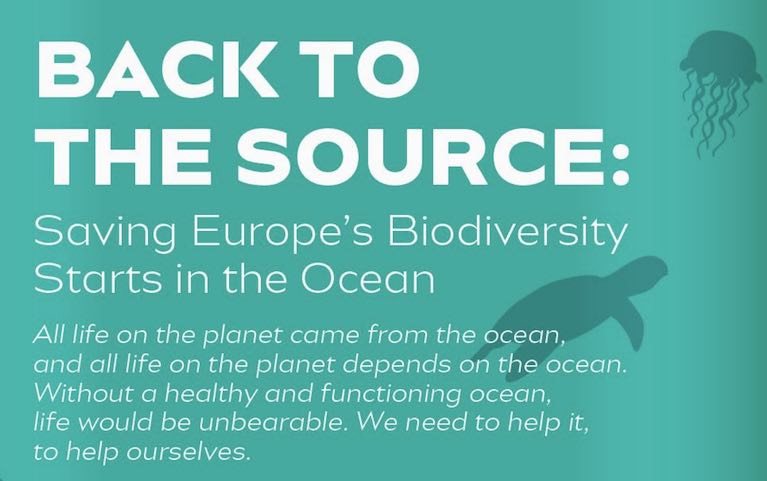A coalition of environmental groups says there are “key marine policy gaps” in the EU’s Biodiversity Strategy 2030.
“Tangible and binding” actions must be taken to ensure the proposed biodiversity strategy ensures “the long-term health” of oceans, the group of environmental non-governmental organisations (NGOs) state.
The group has recommended ten “actions” which it has forwarded to EU “decision-makers”, as in the European Commission, EU member state ministers and members of the European Parliament.
The joint paper entitled Back to the Source - Saving Europe’s Biodiversity Starts in the Ocean, has been published by groups including BirdLife Europe, BLOOM, ClientEarth, Deep Sea Conservation Coalition and the Greenpeace European Unit.
Groups also involved include the International Fund for Animal Welfare, the Mediterranean Association to Save Sea Turtles IFAW, Oceana in Europe, Our Fish, Sciaena, Seas At Risk, The Nature Conservancy, and WDC - Whale and Dolphin Conservation,
The paper calls for existing enabling legislation to be implemented, noting the EU Birds and Habitats Directives require that marine protected areas (MPAs) be created and managed.
Under the Marine Strategy Framework Directive, EU member states have a duty to ensure their seas are in “good environmental status” by 2020, it points out, while the Common Fisheries Policy is meant to follow an “ecosystem-based approach”,
The Deep-Sea Fisheries Regulation provides extra protection for vulnerable deep-sea marine ecosystems, while the Aarhus Convention provides for EU citizens to participate in environmental decisions that affect them.
Enforcement action to ensure these pieces of legislation are implemented in all member states “needs to be dramatically ramped up”, it says.
The paper also recommends developing an EU action plan to protect marine ecosystems and fisheries resources by including “precautionary buffers for climate change when setting fishing limits”
It calls for a “clear and transparent set of environmental and social criteria for allocation of fishing quotas”, along with a “drastic improvement in the control of fishing activities, including a transition to mandatory remote electronic monitoring systems (REM) for all fleets”.
It calls for a focus on “robust long-term monitoring of sensitive species” and “application of measures to prevent and mitigate bycatch of sensitive species”.
It also calls for an end to what it describes as “destructive” practises including bottom trawling in all EU MPAs.
The group recommends ending other destructive practices such as hydrocarbon exploration in MPAs, and ensuring “at least 30% of EU oceans fully or highly protected, as recommended by science in the next decade;
It also recommends making a plan to restore EU marine biodiversity, by setting a restoration target of at least 15% of EU seas, and focusing on “those ecosystems with the most potential to capture and store carbon”
It calls for an end to “harmful subsidies” in the fishing sector, and says it has estimated that in 2018, the EU “handed out over two billion dollars in capacity-enhancing subsidies”.
Many of these subsidies go to “suppliers and vessel owners” while the income of fishing crews does not increase, it points out.
It says there should be a “coherence between EU commitments and its subsidies policies for the fishing sector”, such as the new European and Maritime Fisheries Fund and revised State Aid Guidelines
It also calls for more “urgent and stringent measures” on noise pollution, stating that sudden noise sources include explosions, seismic airguns, pile driving and military exercises using sonar have a negative impact on marine life.
Sustainable fisheries partnership agreements for EU vessels fishing in distant waters should also be reviewed, it says so they “do not contribute to overfishing” and “do not negatively impact the economic activities of local coastal communities and artisanal fleets”
It calls for work to “achieve a moratorium on deep-sea mining, including at the International Seabed Authority”, and the cessation of funding for the development of deep-sea mining technology.
The publication is available here
































































